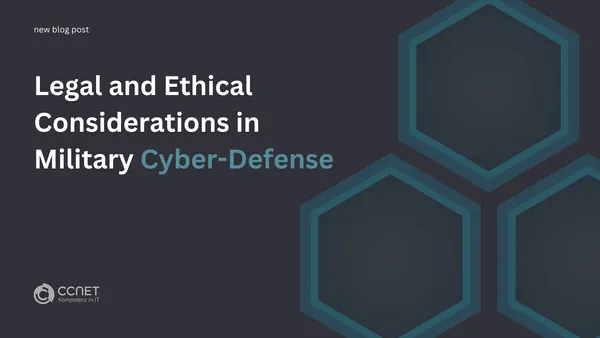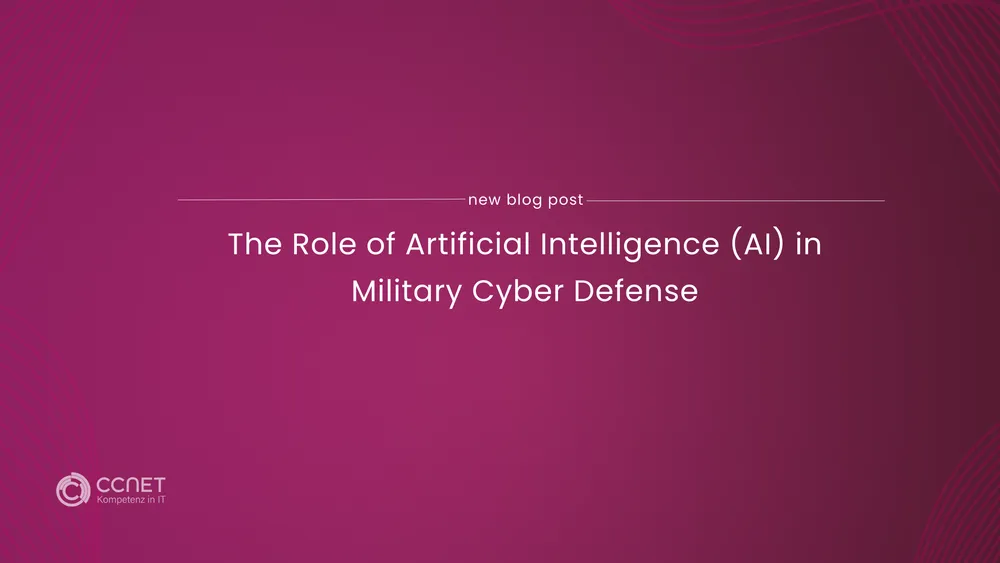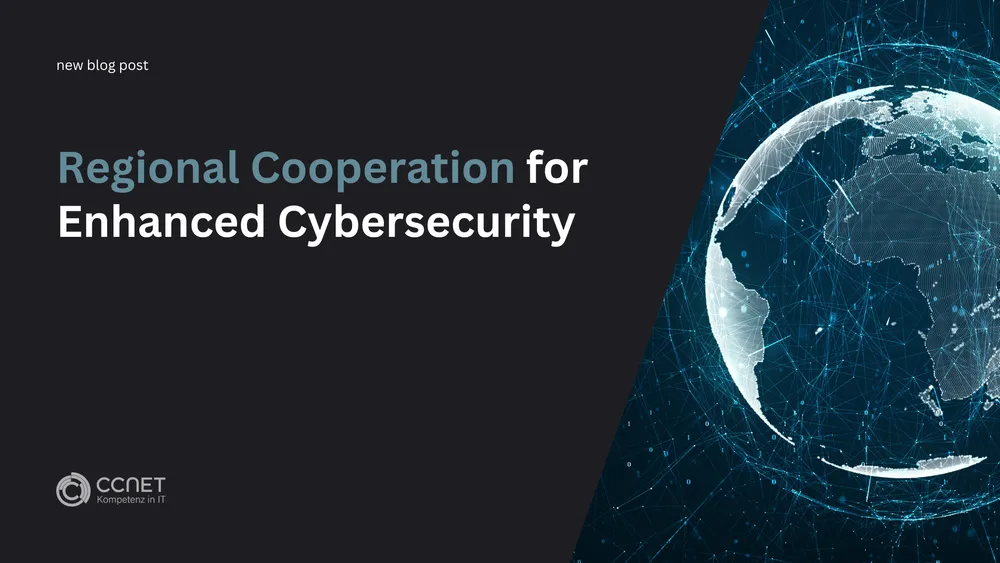
CCNet
Feb 19, 2025 • 3 min read

Legal and Ethical Considerations in Military Cyber Defence
The Rapid Development of Cyber Technologies: Legal and Ethical Considerations in Military Cyber Defense
The rapid development of cyber technologies has not only opened up new opportunities for military operations but has also raised complex legal and ethical questions. As cyberspace has become a central domain of modern warfare, many legal frameworks remain unclear, and the ethical implications of cyberattacks are often disputed. In this blog post, we explore the key legal and ethical considerations involved in military cyber defense and provide an overview of the challenges faced by armed forces around the world.
Legal Frameworks in Cyberspace
Unlike traditional domains of warfare—land, sea, air, and space—cyberspace is not governed by clear, internationally recognized legal frameworks. While international law, particularly international humanitarian law, can be applied to certain aspects of cyberattacks, there are many gray areas that complicate the ability to assess these incidents legally.
A central issue in cyberattacks is attribution: attackers often obscure their identity and origin, making it difficult to assign responsibility and legally penalize attacks. This leads to uncertainties in the application of international law, particularly regarding whether a cyberattack can be classified as an armed attack under Article 51 of the UN Charter, which triggers the right to self-defense.
Another challenge is the lack of international agreements specifically targeting cyberspace. While there are international efforts, such as the Tallinn Manual projects, which address the application of international law to cyber conflicts, the implementation of such regulations at the state level is often patchy and inconsistent.
National Sovereignty and Cyber Operations
A critical legal consideration in cyberspace is the issue of national sovereignty. States assert the right to protect their networks and digital infrastructure from external interference. However, the global nature of the internet challenges this principle. Cyberattacks carried out in one country can access and damage systems in other countries without physically crossing borders. This raises the question of whether such cyberattacks violate a nation's sovereignty.
Another legal dilemma arises with regard to the feasibility of preemptive cyber strikes. If a state believes that another state or a non-state actor is planning a cyberattack, the question arises whether a preemptive strike is legally and ethically justified. Such preventive measures could lead to escalation and threaten international peace, calling into question the legal and moral legitimacy of such actions.
Ethical Considerations in Cyber Defense
In addition to legal aspects, military cyber operations also raise significant ethical concerns. One of the central ethical challenges is the discrimination of targets. In traditional warfare, there is a well-established principle that combatants must be distinguished from civilians. In cyberspace, however, this distinction is often difficult because military and civilian infrastructures are interconnected. Cyberattacks on military targets could inadvertently cause damage to civilian infrastructure, leading to far-reaching societal consequences.
Another ethical dilemma concerns proportionality. While international law mandates that military actions must be proportionate, it is often difficult to determine what constitutes proportionality in the context of a cyberattack. The potential impact of cyber operations—such as disrupting energy grids or manipulating elections—can have far-reaching consequences that go well beyond the immediate military objective.
The issue of transparency and accountability is also of paramount importance. Cyberattacks are often carried out covertly, making it difficult to ensure accountability. This raises ethical questions about the responsibility of states and individuals who conduct or order such operations.
The Need for International Norms and Standards
Given the legal and ethical challenges associated with military cyberattacks, the development of international norms and standards is essential. These norms should provide clear guidelines for how cyberattacks can be conducted in accordance with international law and how ethical principles should be applied in military practice.
International cooperation is crucial in this regard. States must work together to develop common rules and standards that will make cyberspace safer and reduce the risks of uncontrolled escalation. Furthermore, international organizations such as the United Nations should play a more active role in promoting such norms and ensuring that all states adhere to their obligations.
Conclusion
The legal and ethical considerations in military cyber defense are complex and multifaceted. As cyberspace continues to gain importance, states and international organizations must work together to develop clear legal frameworks and ethical guidelines to ensure security and stability. These efforts will be crucial in managing the evolving nature of cyber warfare and in maintaining peace and order in the digital age.


